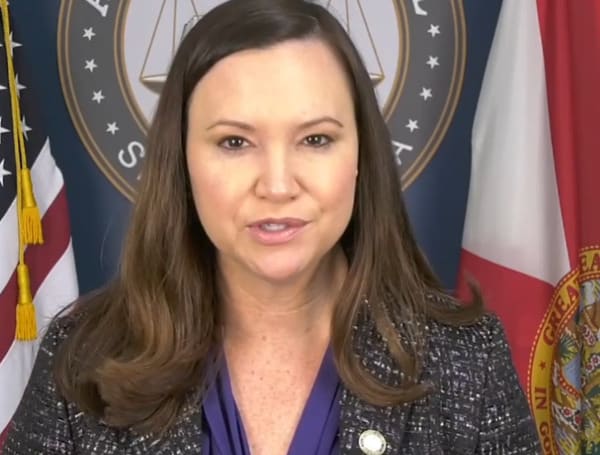A federal judge will hear arguments next week in a challenge by the Florida Democratic Party to part of a new elections law dealing with canvassi
A federal judge will hear arguments next week in a challenge by the Florida Democratic Party to part of a new elections law dealing with canvassing boards.
The Democratic Party and two Miami-Dade County attorneys filed a lawsuit Monday seeking to block a change that they say could prevent volunteers from sharing information from canvassing-board meetings.
The lawsuit contends that the change, part of a broader elections law that the Legislature passed in March, violates First Amendment and due-process rights and threatens criminal penalties that could inhibit monitoring of the activities of canvassing boards.
“Broadly prohibiting authorized observers from sharing their observations, including with the political parties or campaigns they are volunteering for, raises serious First Amendment concerns,” said the lawsuit, filed in federal court in Miami.
U.S. District Judge Kathleen Williams has scheduled a hearing Monday to consider a request by the Democratic Party and attorneys Jane Moscowitz and JC Planas for a preliminary injunction. Moscowitz and Planas, a former state House member, attend canvassing board meetings and volunteer for the Democratic Party, according to the lawsuit.
In the news: Controversial Florida Education Rules Get Go-Ahead
The lawsuit names as defendants Secretary of State Cord Byrd and Attorney General Ashley Moody. Williams set a Thursday deadline for Byrd and Moody to file a brief.
The issue in the case deals, at least in part, with vote-by-mail ballots, which county canvassing boards can review before Election Day. Political parties, campaigns and organizations often send volunteers to canvassing-board meetings to watch how laws and procedures are being applied.
Many canvassing boards were scheduled to start meeting this week to review ballots in advance of the Nov. 8 election, according to a preliminary-injunction motion filed with the lawsuit.
The new elections law (SB 524) drew heavy debate during this year’s legislative session because of issues such as the creation of a state Office of Election Crimes and Security to investigate allegations of wrongdoing. But the issue involving canvassing boards drew little public attention.
Election officials have long been barred from releasing results before polls close on Election Day. But the lawsuit centers on a change that said any elections official “or other person authorized to observe, review, or inspect ballot materials or observe canvassing who releases any information about votes cast for or against any candidate or ballot measure or any the results of any election” before polls close commits a third-degree felony.
The lawsuit contends that the change is vague and “chills core First Amendment activity” of observers who report back to political parties or other organizations about actions taken by canvassing boards.
In the news: Florida Cold Case: Sheriff Seeks Public Help In Identifying Man Found By Construction Workers
“Political parties, campaigns and other organizations routinely send people — often volunteers — to county canvassing boards to observe the canvassing of elections,” the lawsuit said. “These volunteers have traditionally reported back to their volunteer groups engaged in voter protection or election oversight, political parties, campaigns or organizations. These reports are integral to the prevention of wrongful voter disenfranchisement and to ensure that elections are run freely, fairly and in accordance with law.”
As an example, the lawsuit said, “a campaign or party may have a legitimate interest in keeping track of the number of times a canvassing board determines that a ballot bearing some marking near the name of its candidate does or does not constitute a valid vote for that candidate or that candidate’s opponents. Likewise, a campaign or party may have a legitimate interest in monitoring whether canvassing boards’ applications of the voter intent standards are being applied in a fair and uniform manner, both within a single county and across different counties.”
Visit Tampafp.com for Politics, Sports, and National Headlines. Support journalism by clicking here to our GiveSendGo or sign up for our free newsletter by clicking here.
Android Users, Click Here To Download The Free Press App And Never Miss A Story. Follow Us On Facebook Here Or Twitter Here.
Copyright 2022 The Free Press, LLC, tampafp.com. All rights reserved. This material may not be published, broadcast, rewritten, or redistributed.

